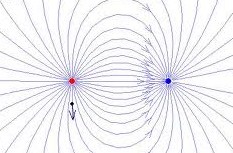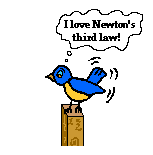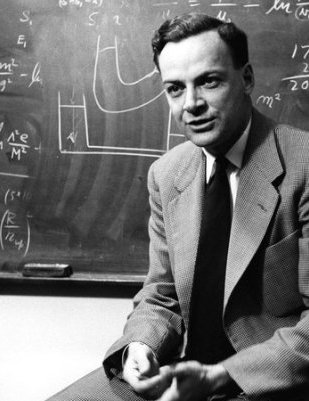|
Word Gems
exploring self-realization, sacred personhood, and full humanity
Editor's 1-Minute Essay
Knowledge: Part II
Stars And Midnight Blue
return to "Knowledge" main-page
|
Editor’s prefatory note:

More than forty years ago, I found myself on a London train heading for a village near St. Albans. There, for the next three years, I would attend a bible college.
As I recall, the hour was very late, the train-car, all but deserted, but for one elderly man, quite inebriated and of slurred speech. He insisted, however, on offering avuncular companionship and seemed to adopt me as his son; but when he learned of my destination, displaying quick displeasure in the knowledge, like an Old Testament prophet, with severity, he proclaimed over and over, “Always be your own man, Wayne! - always be your own man!”
Now, having reached my own old age, I cannot help but wonder if he was an angel sent with a vital message. This would have been my last chance to right myself before further immersion in rigid religious cultism, of the sort I’d endured as a child; but I was too immature to appreciate his wisdom.
The potted aged fellow on the train, like a disheveled Emerson proclaiming his "Self-Reliance," had it right: "Always be your own man!" We need to order whatever he's drinking.
Editor's note: As Lincoln wryly commented on his most successful General, the sometimes-bibulous, but fighting, U.S. Grant, "I should order a barrel of his brand for all of my officers!"
I write this article for my own clarity of sober-thought. I value this commodity greatly, having so-called lived most of my life in a glassy-eyed state. But, I also write for the many who presently suffer affliction as I once did.
|

I peer into the cosmic conundrum that is the midnight sky. I see the Moon.
It appears to be the size of a coin. As reasonable evidence for this assertion, I find that a half-dollar, held high to super-impose the celestial beacon, easily blocks its existence.
But I am deceived.
The Moon as Golden Guardian-of-the-Earth, with sardonic smile, stands sentinel, hovering, just at horizon's edge.
It's so close - just a short jaunt away. I’ll exaggerate and say 10 miles. I know I could ride to it on Simkan.
But I am deceived.
Each morning the Sun rises in the east.
Well, of course, it's rising. We can see it rising. How foolish to doubt this infallible doctrine. And not only that, it's obviously circling the Earth. Like the sweeping arm of the hypotenuse circumnavigating the unit-circle, the Sun arcs its way across a lonely sky, and then falls into sleepy repose beneath the western horizon.
But I am deceived.
|
'The electron revolves around the nucleus like a tiny planet about a sun. These particles are like little billiard balls, very hard, and form the basis of matter. I learned that at school. Even kids know that.'
This idea is wrong, nearly 100 years out of date; there is no miniature clock-work solar system, but only fields of probability.

This incredibly straight road is Route 84, leading northward from Flasher, ND. I spent some hours walking here. I hadn't planned on being out so long, and a sunburn offered evidence of my misjudgment. I thought that this stretch of road, to the top of that far-distant hill, was not more than two miles or so. But you're looking at exactly 5.4 miles; 11 miles round trip. While walking, as I began to realize my logistical error, I thought about the phrase, "as long as a country mile"; and, for the first time, I understood its meaning. Out in the country, with few natural mile-markers to help one gauge distance, without customary reference points, it's not easy to judge distance; and a country mile can seem to be an altogether different displacement than its city cousin. It's easy to be deceived out there; but, then again, if we are not mindful, might we always be easily deceived?
"Matter is not made of matter." Hans-Peter Durr, physicist
Electrons, protons, and neutrons are not made of matter but vibrating energy strands.
Not only is the atom 99.9+% empty space, but its components, so-called hard matter, are not matter at all. The closer we look, the more we discover there's "nothing" there.
"Our everyday lives are technically an illusion. The objects and surfaces that we perceive as real are only the temporary intersection of our consciousness with the 'true' universe, made entirely of energy. 'Which raises the question of this wooden floor,' Baumann adds, tapping it with his heel. 'If we weren't here looking at it, would this floor still exist? Well, it would, but it exists only as a nebulous, ill-defined mass of wave forms. It's not until some type of measurement or observation occurs, and you have what's called "the collapse of the wave function," that the nebulous mass of waves solidify into concrete, particulate matter.'" Dale Short, on author T. Lee Baumann, God At The Speed Of Light
Be careful of what you accept as reality. Much of the world is not what it appears to be.
|
Twinkling points of light peering down upon us from a midnight-blue canvas seem to be firmly fixed (which is why the ancients used the term "firmament"), like raisins stuck in a pudding.
As these heavenly bodies imperceptibly drift overhead - no doubt, at the nudging of angels who manage such things; who could gainsay this? - the Earth itself is surely at rest, not moving at all. Why, if the Earth were moving, we'd all be thrown about, this way and that, like jostling marbles in a little boy's cupped hands. (Editor's note: See the movie "Agora" on the life of female ancient scientist Hypatia who may have been one of the first to find an answer here.)
But I am deceived.
I am a young teenager working in the fields at harvest time. Sometimes I'd rather not be there, but I also like working with Dad and Uncle Joe and my cousin Tom. Some days the sky seems so inviting with its endless depths of royal-majesty blue; and the fields of burnished gold rise up to command my attention.

But the sky is not made of blue electrons, and the wheatfield knows nothing of golden sub-atomic particles. Light reaching my eyes comes in various degrees of frequency which the brain translates as color. But this is illusion. Color exists only in my mind as editorial comment.
I am deceived.
I like riding Simkan. I didn't appreciate him enough in those long-ago years. What a powerful horse! Even now, 50 years later, I can still feel the rippling muscle of that galloping noble animal. He seems so solid, so formidable. And yet, he's not solid at all... the atoms comprising his regal frame are 99.99% empty space. And though I'm riding "bare-back," I'm not really touching him. Electrical atomic force-fields of his body repel my own. We never make true contact.
I am deceived.
|
'If everything is more than 99% empty space, why doesn't my hand go through the wall? why don't I sink through my chair?'

outer-shell electrons, of separate atoms,
repelling each other, creating a force-field
"The electrons spin so fast around the nucleus, they create an impenetrable shell through which other particles cannot normally pass. Picture a person swinging a weight around herself on a piece of string; you can never get close enough to touch her, because the circling weight keeps you at bay. In a similar way, when two atoms meet, their electronic orbits stop them from passing through each other, and they behave as if they were solid balls." Peter Russell, physicist
Our five sense are often untrustworthy guides and witnesses. You say that you are touching a rock. The truth is, you are not touching the rock. You have never directly touched anything in this world!
What you "feel" as the hard surface of the rock is an electrostatic forcefield between the atoms of your hand and those of the rock. And you are not sitting in the chair that feels so solid, either. You have never touched a chair. There is a barrier, a space, of 10-8 cm between yourself and the matter you think you are touching. What you are "touching" is an electron-based force-field.
Be careful of what you accept as reality. Much of the world is not what it appears to be.
|
A full moon on a warm summer night lights up the prairie. I'm nine years old and I'm surprised at how bright it is tonight. Dad bought for me a set of World Book Encyclopedias, and I've been reading them like storybooks. "Dad, did you know that the Moon is only about 200,000 miles away?" Dad is a smart man and a successful farmer, but he doesn't know about things like that and protests against my assertion. "Dad, did you know that it takes only one and a third seconds for light to go from the Moon to the Earth?" Dad is now becoming annoyed with his little professor. But, much later in life I would learn that my lecture needed some fine tuning. Light actually has no speed at all. From the perspective of the photon, it "experiences" no time and no distance, and is omnipresent in the universe. Light does not comfortably reside in our limited 3-D world but beckons as herald of a higher dimension. What we as "stationary" third-party observers deem to be the "speed of light" is but an illusion, in effect, the constant ratio of manifestation of space and time. Kant was on the right track: time and space are mere constructs of the mind and do not authentically exist. A cosmic parlor trick. Increasing speed of an observer causes space and time to manifest at decreasing rates. However, this imperial reality is not the way things seem to hapless mortals burdened with imprecise sensory apparatus.
I am deceived.
|

The pompous rooster, in the twilight time of pre-dawn, exuberantly crows to all the world; shortly thereafter, with clockwork precision, it witnesses the Sun groggily climbing out of its eastern horizontal bedchamber. Insufferably proud at his achievement, the chanticleer is convinced that his crowing becomes proximate cause for the Sun’s rising. “It’s a simple matter of cause-and-effect,” he chuckles to himself. “Anyone can see that my crowing causes the Sun to rise. It happens every morning at my call, and has done so for thousands of years. What could be more convincing?”
“Cause and effect” is a principle many believe in. Aristotle 2500 years ago, dissecting the process, enshrined it all with several different forms: the efficient cause, the final cause, the formal cause, and the material cause.

For millennia, people accepted Aristotle's opinion as the last word on theories of causation. It all seemed very tidy, "laminated in plastic, blessed by the Bishop" – until the great Scottish philosopher David Hume blew it all up by impolitely informing us that it’s not possible to infer, or to argue backwards from, an effect to determine absolutely an initiating cause. The operative term here is “absolutely.” Our powers of discernment cannot detect the panoply of causes that might be in play in any given case. What human beings deem to be “cause and effect” devolves to a prejudicial assessment of the mind unwarrantedly conjoining elements that follow each other temporally, but without necessary connection. It’s just a bad habit and "fake news" of the mind. It makes connections of causation based on what it sees; the problem is, it doesn’t see very much. It’s just the cock crowing at dawn, believing its own propaganda that crowing-mayhem causes the Sun to rise.

Dr. Rupert Sheldrake in his book “Science Set Free” lists ten major “infallible doctrines” of science that are wrong; things that people take as gospel and swear by, but are wrong. Part of the confusion stems from our heritage of the Newtonian “clockwork universe.” Newton’s seventeenth century “Three Laws Of Motion” constituted a tremendous advancement in science; at the time, Newton was considered to be an agent of God, having delivered final revelations, such that, no more could be learned in science.
Well, it was wonderful, and his insights did answer a lot of questions. The “Three Laws” did take us to the Moon and back. But Newton’s universe of strict “cause and effect” is now viewed as mere subset of a larger system. Newton’s principles, while working well on the “macro level,” have been dealt a severe blow by quantum mechanics. On the level of the infinitely small, the undergirding and foundation of “what is,” we discover, to our shock, that there is no strict “cause and effect”; there is no “put your nickel in and out comes the candybar every time.” (See the "double-slit" experiment.) The universe and reality, in their basic essence, don’t work that way, but only appear to do so, and this, only within a narrow context.
Instead of “cause and effect” as our guiding principle, we now must speak of “structured randomness” and “quantum fields of probability.” Even so, many fundamentalists, within religion and science, refusing to abandon outmoded Newtonian views, continue to drone on about “cause and effect” and “sowing and reaping” as if this were law. It’s not. There are no “laws” of the universe, as such; instead of “laws” we find evolving “habits” of nature. Dr. Sheldrake explains it to us.
- Dr. Richard Feynman, Nobel laureate, considered to be "the most brilliant teacher" of physics: "We do not yet know all the basic [principles of physics]: there is an expanding frontier of ignorance... one needs a considerable amount of preparatory training even to learn what the words [of physics] mean... Each piece, or part, of the whole of nature is always merely an approximation to the complete truth, or the complete truth so far as we know it. In fact, everything we know is only some kind of approximation... Therefore, things must be learned only to be unlearned again, or, more likely, to be corrected."
One of my heroes of history is the apostle Paul. I was a sedulous student of his writings for a great many years. While there is some Newtonian merit in Paul’s assertion regarding “cause and effect” and “sowing and reaping,” it ultimately fails. Reality is more complicated than that. We don't really know what causes what; sometimes X and Y produce Z, and sometimes they do not; sometimes concentration-camp overlords become "saints" while inmates become "sinners"; sometimes a backwoods boy with no formal education becomes a great statesman of the world, while his ivy-league counterpart, headed for the dustbin of history, mouths tiresome totalitarian sophistry. There's no way to predict. Paul was wrong, and I was wrong, about causation.
I am deceived.
|
I plunge a stick into a pool of water.

I'll have you know I'm quite experienced in such matters because I once spent much time perfecting this skill at a pond (very near to where I found a big colorful agate rock, which, we were certain, fell from a spaceship. But I digress.) Our stick under review, now partly immersed, appears to be bent. Now, don't be that way, there's no use arguing about it, anyone can see that the stick is bent.
But I am deceived.
|
Cause and Effect: 'keep the law and you'll be blessed'
'My priest/minister/rabbi said that the universe is built on cause-and-effect, and that morality works the same way. He says that if I keep the church/temple rules, I can expect to be blessed; if I disobey, there'll be a penalty from God. I guess this makes sense. Isn't cause-and-effect the way the universe really works?'

"Sowing and reaping" is a phrase the apostle Paul used in Galatians. It makes a lot of sense and good wisdom if you're a farmer. But if you try to expand this principle to include all the universe, you're going to fail.
Newton's Third Law of Motion forms the basis of the famous "cause and effect" dictum; however, it's the only point of physics that most preachers want to quote.
Newton's laws work well within a limited frame of reference - it took us to the Moon and back. But we now understand that Newton's famous "laws" were but subset rubric within a larger system.
Newton's "laws" work well for "large" objects but quickly break down - their usefulness in terms of predictability loses potency - both at the super-small atomic level and even for larger objects as they approach a meaningful fraction of the speed of light.
The domain of the very small, the quantum world, with its "fields of probability," is spoken of by physicists as "the end of causality"; "the end of determinism"; that is, the end of cause-and-effect. But demagogic religionists, intent upon harnessing you with fears of God's judgment and self-serving views of "law," tend not to talk about current physics. "Cause and effect" has been dead for a hundred years, but you won't learn of this advancement from the pulpit.
Editor's note: see Dr. Sheldrake's discussion on how the universe's so-called "laws" are more like habits.
The deterministic "clockwork" universe of Newton has been rendered virtually obsolete. In the larger quantum world, certain inputs do not always yield predictable outputs. There is no universal cause-and-effect, only probabilities of likelihood -- mediated by elements once considered to be exclusive domain of the metaphysical and the spiritual: thought, consciousness, and intention! (see physicist Peter Russell)
Be careful what you accept as reality. Much of the world is not what it appears to be.
Editor's note: see further discussion in the article on "morality."
|
|
How often our senses deceive us! Might they always? Do we ever get it right? How would we know?
We live in a world fraught with illusion. Compounding this malady, the average person is deeply in debt to "the family prejudice" and is too frightened of new information to go searching for the Truth.
|
It is in the nature of things for Reality to reveal itself
I have this theory... "God is Light."
While I am not a fundamentalist - not anymore - who believes in an "infallible" Bible, the scripture does contain some valuable wisdom-sayings. Here's one that I like: "God is Light"; that is, the heavens will yet open for us as it is God's nature to reveal the inner workings of reality.
As the ancient rabbis taught, the creation itself removes the veil from the "hidden face of God" - but not always in a straightforward manner. The sun doesn't rise, after all, it doesn't sleep just below the horizon, and it isn't herded by angels. The easily accessible surface-appearances of the world can lead us into error, common sense often devolves to common mistake, and seeing is not necessarily believing. We must go deeper. It was meant to be this way. We are to hone and develop the human-godlike analytical mind. And this is why the Gnostics decried simplistic, literalistic interpretations of both life and scripture and pleaded for allegorical decryptions.
|
The double-slit experiment, "impossible … to explain in any classical [Newtonian] way, [embodies] the heart of quantum mechanics. In reality, it contains the only mystery [of science]."
Dr. Richard Feynman
1965 Nobel laureate in physics
Editor's note: The granddaddy of all unexpected and shocking phenomena relates to the quantum world. Be prepared to have your views of reality shattered upon entering it. READ MORE
|
 |
"God is Light"; and, therefore, as sons and daughters in the Family, we've been fitted to inhabit an expanding vista of Reality - "the Truth" - and we shall advance upon, thrill to its discovery, and capture this territory, our rightful home, little by little, as eternity unfolds.
"God is Light," and so are we; that is, our natural state leads us to desire knowledge. To live otherwise, to love the darkness, requires great effort on our part; it's called repression, a fear-based turning away from what's real.
Allow me to restate:
It is part of our heritage, as scions "made in the image," to acquire knowledge. It is what we do naturally, as ready-response to inward constitution. Our souls are sincere and open creatures, playfully expressing childlike curiosity at a universe filled with the magical and wondrous. In this unfettered, in-love-with-life state of being, we want to learn and are not afraid of change and growth. "God is Light," and so are we - if we allow it.
In the New Testament, the apostle Paul often uses the phrase, "We are the temple of the holy spirit." Paul had something important to say, but his heart-felt teaching has been buried under centuries of mistranslation and church-speak.
I offer an expanded paraphrase of Paul's words:
The temple in Jerusalem cannot help you. Its rituals, formularies, and rubrics cannot help you. Law-systems, be they Jewish or Gentile, cannot help you. All these, if they had a meaning, offered mere adumbration of a Reality to come, God's true purpose for us. You are the temple, you are the dwelling place of God! You, your own sanctified mind and deepest inner-person, are the true 'holy of holies' wherein Highest Divinity will be found. The 'holy spirit' is your own 'purified consciousness'.
the myth of certainty
A long time ago, I read a book, The Myth Of Certainty, by Dr. Daniel Taylor, professor of literature at Bethel College, St. Paul, Minnesota. He poses a question which, at least subliminally, bothers not a few:
"Thinking, as many have discovered, can be dangerous. It can get us into trouble - with others, but also with ourselves. And the suspicion lingers in religious circles that it can also, if we are not careful, get us into trouble with God."
Looking under rocks has its disadvantages. You never know what you'll find down there. Yet, we want to know - there is a part of us that craves order and a sense of meaning regarding our lives.
"We crave explanation because it contributes to perhaps the most basic of all nonphysical needs - the need for security... we are vulnerable. Destruction - physical, mental, emotional, spiritual - threatens us at all times. A fall from a curb, a lost job, a bitter word, a public humiliation - at every point we feel the hazards of life. The great bulk of human activity aims at lessening that vulnerability. Making money, seeking love or accomplishment, buying insurance, courting power, wearing the right shoes, writing books, having children... all these and countless other daily activities are ways of protecting ourselves from the myriad threats to our sense of personal safety and well-being."
Taylor goes on to explain that the unreflective adopt belief-systems in an effort to buy security in a hostile world. The apostle Paul, in Galatians, says much the same thing, as he explains the dark motivations behind the acceptance of legalism.
"We fend off competing world views because by threatening our present understanding of reality they threaten our essential security. An unbeliever presented with the claims of God, for instance, or a believer confronted with the view that God is mere wish-fulfillment are both being told that any meaning and security they have derived from their explanation of the world is spurious and illusory... When people defend their world view, they are not defending reason, or God, or an abstract system; they are defending their own fragile sense of security and self-respect. It is as instinctive as defending one's own body from attack."
All these things are complicated; and, in a sense, so tiresome. Why should we be bothered by psycho-analytic questions? How did we mess ourselves up so much? I wish I could go hunting for agates again and just sit by that pond with my bent stick.

God is light, and so are we; the heavens shall yet open for us, disgorging its secret treasures... stars and midnight blue... Yet, despite these revelations to come, we gasp, and grieve, to perceive the anomaly, that our hope for enhanced sentience should gain ascendancy from such meager beginnings... the worm in its dullness, the glassy-eyed young boy hardly aware of the light... misconstruing not only sticks in water but the nature of life, and fellow-travelers through it... misconstruing and losing himself.
|
I have lost myself...

Enya
Stars And Midnight Blue
Memories we shared together
Moments no one else can know
I will keep them close to me, never let them go
Once you filled my hands with roses
Then you gave your heart to me, love was meant to be
Time goes by, the snow is drifting
Slowly in the sky, cold, cold night
You have lost yourself in dreaming
I have lost myself in you
Now we lie beneath the sky
Stars and midnight blue
Stars and midnight blue
|
Man’s quest for knowledge leads to questions concerning what is true, as opposed to opinion, wishful thinking, religious dogma posing as certitude, and superstition.
A major area of philosophy is devoted to metaphysics which, traditionally, has been divided into two branches: (1) ontology, “what’s real?” and (2) epistemology, “how do we know it’s real?”

The scientific method has allowed great success in establishing the veridicality of information, has given wings to the process of metaphysics. However, I have come to see that science is not enough. Science does its best work within realms of the quantifiable and the calculable. But I now understand that the universe’s greatest mysteries will not surrender themselves to tape-measures and balance-scales. It is the poet, the mystic, the artist, the spiritual mind that will see deeper and farther than the rest.
God is light, and so are we – but the vast and profound implications of such proposition have escaped us. If it is God’s nature, and our essential nature, to promote disclosure, revelation, and clarity, then no great effort will be required to find and know the truth. If it is hard for us, this can only mean that we ourselves are somehow blocking the transmission of light.
Stars and midnight blue… We’ve spoken of the Sun, Moon, and Earth defrauding our senses… but some encounters with celestial bodies could never beguile us… stars and midnight blue… as Enya explains, there's more than one way to lose oneself, a good way but also a bad way, which latter is the greatest misperception of all... the Dazzling Darkness, however, could never deceive us… the venerable Spirit-Guides teach, when it happens to you, you will know; when it happens to you, whether in this world or the next, there will be no chance of mistake; you will know, as you will know little else… stars and midnight blue…

|
Editor's last word:
"Fundamentalism, in all its manifestations, falls away as we understand, time after time, 'I am deceived.' Fundamentalism requires that truth is both objective and exhaustive, and yet we are constantly having to revise our opinion and to accept that reality is largely our own subjective evaluation… It's hard to overestimate the level of disappointment when we fully embrace how badly we were deceived by fundamentalism. Our first thought would be, a just God would never allow such abuse, and it's so hard to believe. Later on we realize, we did it to ourselves, and we recognize that nature exacts a heavy penalty when we surrender our sovereignty and abrogate our powers." Adrian Smith, J.D.
Adrian's correct. Nature exacts a heavy penalty when we surrender our sovereignty to "Dear Leader-ism," abrogating our powers of critical thinking and judgment.
This is the "heavy penalty": in the end, we repress not only knowledge but ourselves, our natural state... or, as Enya has it, we lose ourselves... that innate unafraid, childlike wonder, that innocent and trusting part of ourselves in love with life, meant to explore and thrill to each new-day's vista of unfolding reality.

Yes, we lose ourselves, our ability to love; the ultimate penalty... causing us to lose each other; the ultimate loss... one more "I am deceived"; the ultimate deception... but let us take heart to envision infinite tomorrows offering many sticks and ponds yet to enjoy.
|
|















